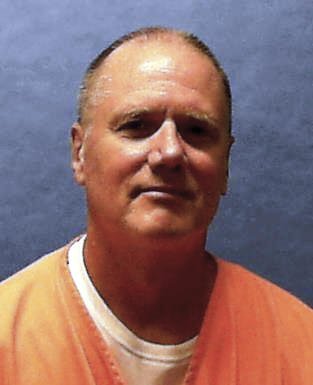Florida made somber history on Thursday with its ninth execution this year, a grim milestone marking a state record since the reinstatement of the death penalty decades ago. Edward Zakrzewski, an Air Force veteran convicted of the horrific 1994 machete killings of his wife and two young children, was put to death by lethal injection at Florida State Prison, becoming the latest individual to face capital punishment in the state. This act underscores Florida’s accelerating pace in carrying out death sentences.
Zakrzewski’s execution at 6:12 p.m. concluded a nearly three-decade legal saga surrounding a brutal crime that shocked the Florida Panhandle. The 67-year-old was sentenced to die for the murders of Sylvia Zakrzewski, 34, and their children, Edward, 7, and Anna, 5, on June 9, 1994. The gravity of this case has long resonated throughout the state, highlighting the irreversible consequences of a murder conviction.
Trial testimony vividly detailed the horrific events that unfolded at their Okaloosa County home. Evidence showed Zakrzewski committed the killings after his wife sought a divorce, revealing a chilling pre-meditation as he had previously expressed intentions to kill his family rather than allow the separation. Sylvia was initially attacked with a crowbar and strangled with a rope, and both children tragically died by machete. Sylvia was also struck with the blade again when Zakrzewski believed she had survived the initial assault, according to court records.
Over the years, Zakrzewski’s legal team mounted numerous appeals, consistently challenging his sentence and conviction. However, each attempt to overturn the verdict or delay the execution was ultimately rejected by various courts, culminating in the Supreme Court’s denial of a final request for a stay just a day prior to his scheduled execution. This protracted legal battle exemplifies the complex nature of death penalty cases and the exhaustive review process.
On the day of his execution, state Department of Corrections spokesman Paul Walker reported that Zakrzewski awoke at 5:15 a.m. and later consumed a final meal consisting of fried pork chops, root beer, and ice cream. He received one visitor and “remained compliant” as he awaited his final moments, a stark depiction of the routine preceding such a definitive sentence.
Florida’s nine executions this year surpass its previous single-year high of eight in 2014, a total it had matched by mid-July. This rate puts Florida significantly ahead of other states like Texas and South Carolina, which have each carried out four executions in the same period. Two more executions are already slated for August in Florida, underscoring the state’s determined stance on capital punishment and its commitment to enforcing sentences.
Opponents of Zakrzewski’s execution cited his prior military service as an Air Force veteran and the split jury vote (7-5) that recommended his death sentence, which under current state law would not have resulted in a death penalty recommendation due to the lack of a unanimous jury. These arguments highlight ongoing debates surrounding the application of the death penalty and the criteria considered in such severe cases, particularly for individuals with backgrounds of military service.






Leave a Reply